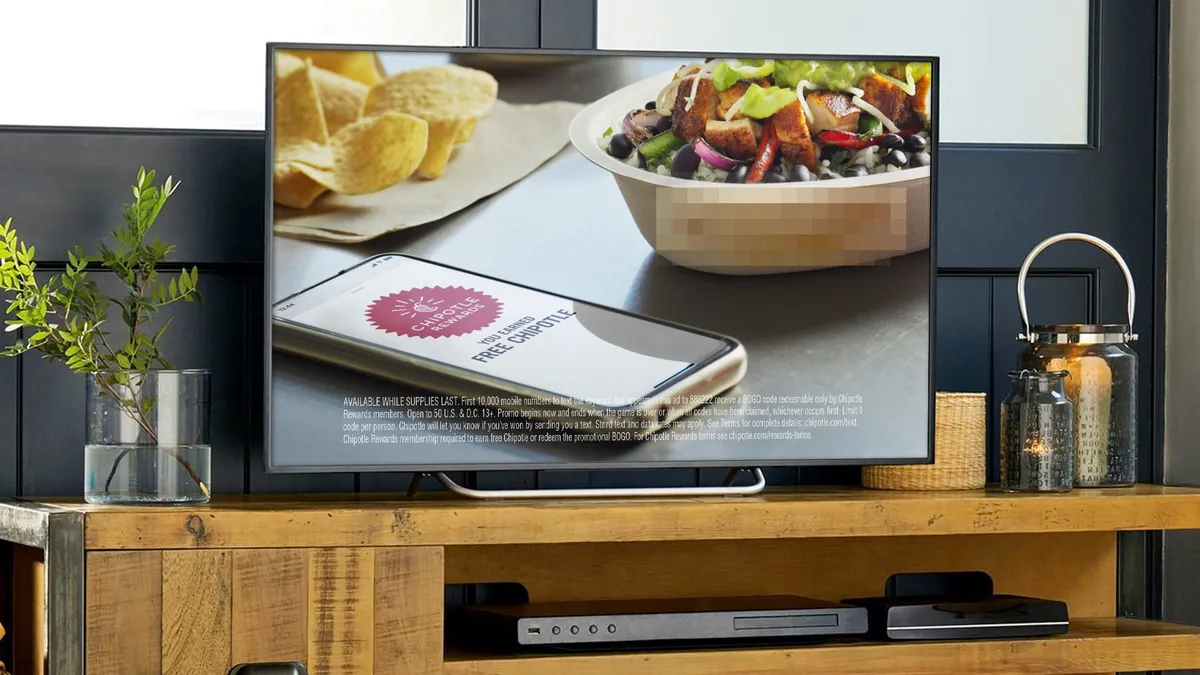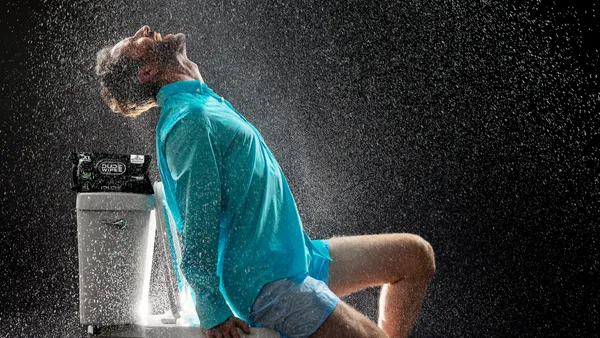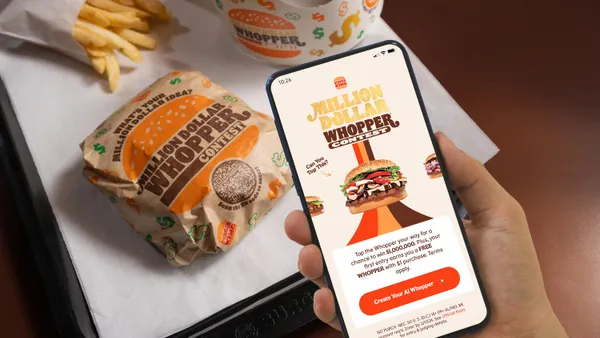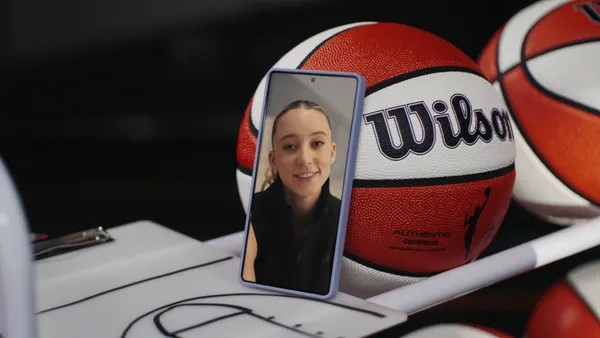Chipotle Mexican Grill this month launched a campaign that relied on a mobile technology that predates the smartphone: text messaging. The effort coincided with the NBA Finals, though the restaurant chain wasn’t an official sponsor like rival Taco Bell.
During the first four games of the championship series between the Golden State Warriors and the Boston Celtics, Chipotle hid a unique keyword in its television ads to unlock a buy-one, get-one-free (BOGO) offer available to the first 10,000 members of its Chipotle Rewards loyalty program who texted the keyword to an SMS short code to claim their chance to win.
“The text-to-claim experience taps into the consumer behavior of watching sports alongside a second screen,” Tressie Lieberman, vice president of digital marketing and off-premise at Chipotle, said in an email. “The activation required Chipotle Rewards members to react with speed, which grew increasingly more competitive as the series progressed.”
During the first game of the finals, Chipotle customers claimed all the offers in two minutes, she said. Loyalty members were quicker to act during subsequent games. All the offers were gone in less than a minute during the second game, and less than 30 seconds during the third and fourth games, Lieberman said.
By seeking a text response, Chipotle tapped into one of the most pervasive and popular mobile activities. About 78% of U.S. consumers said they use their smartphones to check, send or answer texts throughout the day, according to a survey by SMS marketing firm SimpleTexting. That percentage is higher than for other daily activities such as checking social media, consuming content, using email and making phone calls.
28 million Rewards members
The pervasiveness of text messaging helped to ensure that Chipotle received a response from members of its loyalty program, which was started in 2019 and has 28 million members in the United States. The company this month expanded Chipotle Rewards to Canada, where it has 28 restaurants and plans to open four more locations this summer, per an announcement.
The strong response by Chipotle Rewards members to its BOGO offer during the NBA Finals indicates that the campaign was effective at reaching those customers while also raising awareness about the loyalty program among non-members. The championship series averaged 12.3 million viewers a game, up 24% from last year’s contest between Milwaukee and Phoenix, according to Nielsen data cited by the Associated Press.
“Over the past few years, we’ve identified innovative ways to engage fans during the finals while not being an official league sponsor,” Lieberman said.
With many basketball fans sharing their reactions to live games on social media or in text messages to friends, Chipotle has worked to integrate those mobile experiences into its campaigns during the NBA Finals.
In 2019, its “freeting” effort asked viewers to keep an eye on the Chipotle account on Twitter. Every time the word “free” was said during the game, Chipotle tweeted a unique code for viewers to text for a chance to receive a free burrito. The following year, the company gave out $1 million in burritos to viewers who texted a keyword that appeared at the end of its ads.
First-party data for retargeting
This year’s campaign was notable for its emphasis on being a member of Chipotle Rewards, which was updated last year to let customers exchange their points for more choices of free menu items.
“The program attributes that allow Chipotle Rewards members to earn free Chipotle faster have been widely praised by our community,” Lieberman said. “In addition, our Extras feature gamifies the Rewards experience and allows Chipotle Rewards members to unlock access to extra points by completing personalized challenges and collecting special badges.”
The rewards program helps Chipotle gather more detailed information about its customers. Such first-party consumer data has grown more valuable as marketers confront the loss of device identifiers and third-party cookies as companies such as Apple and Google tighten their privacy policies. These changes make it more difficult to retarget consumers with digital ads.
“For retargeting, Chipotle leans more on first-party data for reporting and generates the most suitable audience profiles by campaign,” Lieberman said.














